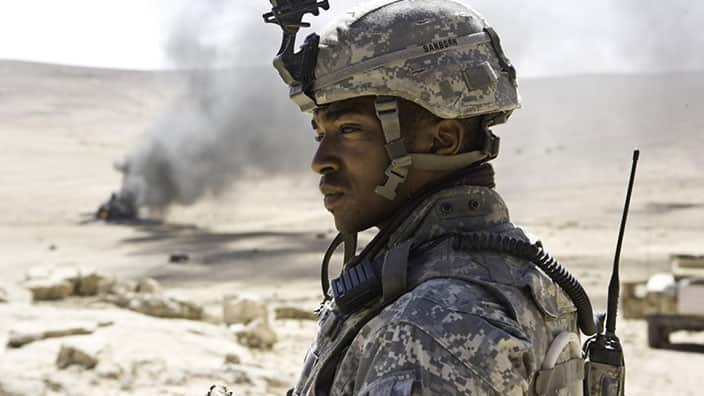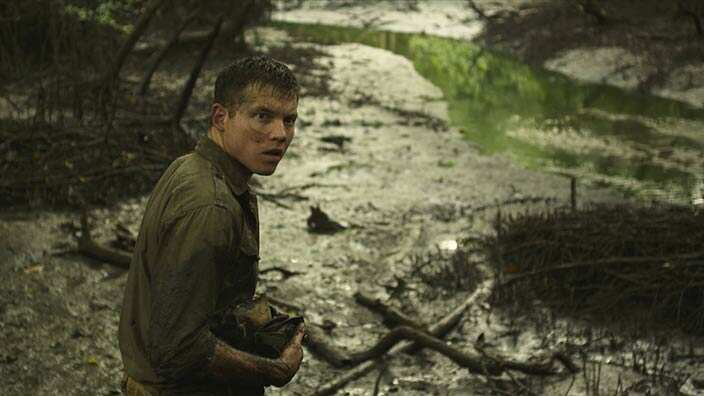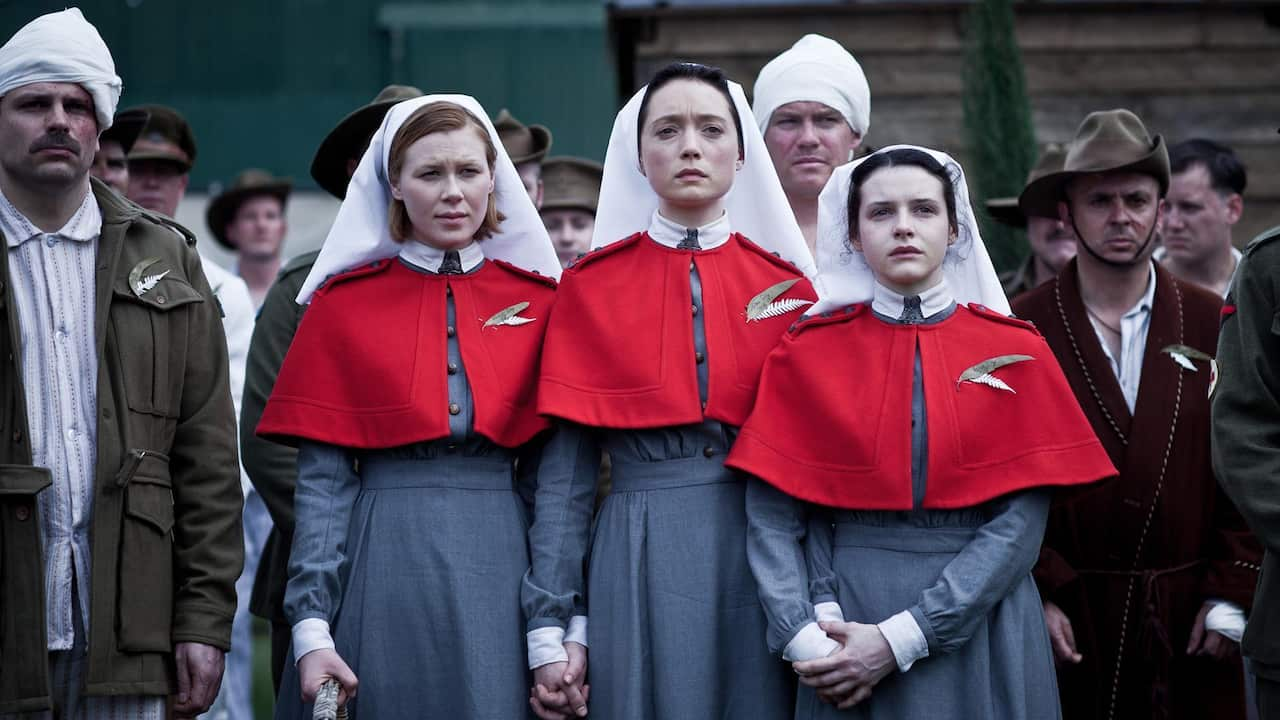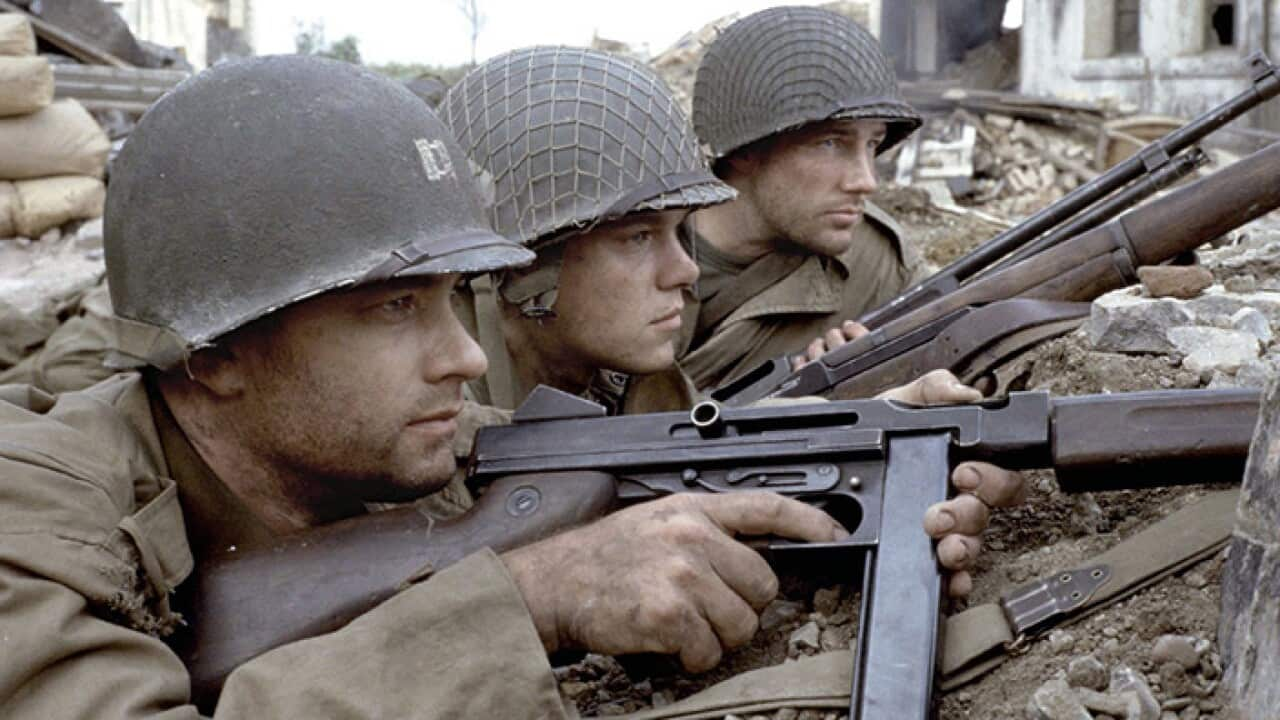With Anzac Day almost upon us, we asked several prominent Australians to talk about the endless appeal of war movies. What do they say about the human condition, and what is it like as a viewer, when you're on the 'other side' of the story?
Stephen Henderson, national manager of special projects at the Returned and Services League, says cinema helps us understand the enormity of conflicts. “Humans by nature are inquisitive and seek knowledge to assist in the understanding of life, its complexities, virtues and horrors,” he says.
While there’s a certain requirement for war movies to provide accurate historical and contextual depictions, there’s also room to explore the imagined within that broader context,
Henderson argues. “Plot can be fictitious, but expression of human condition is vital.”
Acknowledging that governments have leapt on the propaganda power of war movies, flooding them with money that funded technological progress and even greater audiences, he reasons that there are countless films offering a more nuanced take, including Kathryn Bigelow’s The Hurt Locker.

Still from 'The Hurt Locker' (2008) Source: SBS Movies
We all know someone affected
Tom Papas, festival director of the Veterans Film Festival - which screens films exploring conflict globally and aims to raise awareness of veterans’ and their families’ experiences - says part of the appeal is that we all know someone who has been affected by war.
“Many people in Australia have a grandfather or great grandfather who have served and can tell you their stories,” he says. “There has never been a time when no wars occurred. The Veterans Film Festival receives submissions from all around the world and it’s quite profound to see the diverse perspectives.”
The inaugural 2016 festival’s line-up included the Red Poppy Award Best Australian Feature Film-winner The Crater, a documentary by Oscar-nominated filmmaker David Bradbury that followed one Vietnam veteran’s quest to find an unmarked mass grave that held so many of his fallen comrades. Best International Feature Film went to Canadian director Paul Gross’ dramatic feature Hyena Road, following the experience of three very different men facing war in Afghanistan.
“Even though so many stories have been told about war, there are still plenty more we haven’t seen,” Pappas says.
Afghanistan veteran Talissa Papamau, a former army medic, is the founder of social media network Modern Soldier, set up to provide access to support services for current and former serving members as well as raising awareness of the issues they face and celebrating their successes.
“The lived experience of war, regardless of what conflict, will always push the absolute limitations of human experience and often encompasses the full gamut of what it is to be human,” Papamau says. “There are experiences of love, separation, trauma, hardship, death, violence and combat. It's the richness and expanse of the human experience in the theatre of war that creates appeal and captivation for both movie-makers and their audiences alike.”
The lasting legacy
Growing up in the tiny town of Tocumwal in New South Wales, writer/director Aaron Wilson was surrounded by nature, and also by returned service men living with the legacy of war.
His fascinating debut feature Canopy is set during WWII, after the fall of Singapore to Japanese forces. It stars Khan Chittenden as an Australian airman shot down over the jungle and Mo Tzu-Yi as Seng, a similarly stranded Chinese/Singapore resistance fighter. As they attempt to survive the night, the language barrier becomes moot as they’re forced to avoid the enemy together in silence.
“Many of the veterans I spoke to say they don’t actually remember the battles, because they were in the heat of the moment and adrenaline and then it’s over,” Wilson says. “What they remember most is the moments when they were by themselves, if they were stuck between camps or shot down, getting back to safety surrounded by nothing but jungle.” Seeing the psychological effects on Tocumwal’s returned veterans and their families, Wilson was far more interested in telling a character-driven story than a typical gung-ho war movie. “It’s not about macho action, if you strip away the dialogue, their race, their background, their gender even, it becomes as story about two human beings who have the need for connection and to survive the night. It’s about exploring male vulnerability.”
Seeing the psychological effects on Tocumwal’s returned veterans and their families, Wilson was far more interested in telling a character-driven story than a typical gung-ho war movie. “It’s not about macho action, if you strip away the dialogue, their race, their background, their gender even, it becomes as story about two human beings who have the need for connection and to survive the night. It’s about exploring male vulnerability.”

Still from 'Canopy' (2013) Source: Jin Chuan Pictures
Writer and producer Felicity Packard adapted the six-part Screentime series Anzac Girls, about the incredible achievements of First Word War nurses, from the book The Other Anzacs by journalist and co-writer Peter Rees. “Yes, we’d seen war nurses, but they just tend to glide in as ministering angels or love interests and they don’t have a particular perspective, and they certainly don’t drive war stories,” she says.
This despite Australian women serving in every combat since the Boer War, “And yet their stories have been almost entirely marginalised to just a footnote, the handmaidens to the men, rather than having currency of their own. The rose of No Man’s Land, that sort of thing,” Packard says.
“It’s not to devalue or belittle what men serving on the font line were going through, it’s just to say if we’re going to be grown-ups and look at what war means and what it does to people, we have to look at the full picture.”

Still from 'Anzac Girls' (2014) Source: Screentime
Old wounds are hard to heal
Australian-Vietnamese writer, actor, director, producer and stunt person Maria Tran, a former vice president of the Vietnamese Community in Australia’s NSW chapter, says films about the Vietnam War tend to elicits mixed responses from within the community.
“It’s still in the hearts and minds of a lot of the older generation who are slightly more able to enjoy war films like Saving Private Ryan, but anything to do with the Vietnamese War has always been a very touchy subject,” she says.
Fascinated by Bradbury’s work, Tran encountered a lot of reluctance to speak up about the subject while attempting to help him find Vietnamese interviewees for The Crater. “I was trying to find different people in the community who would want to engage with this project and have their voices heard and everyone got really afraid, including the next generation who worried about getting ostracised if they spoke out about anything related to what happened 40 years ago.”
Share


